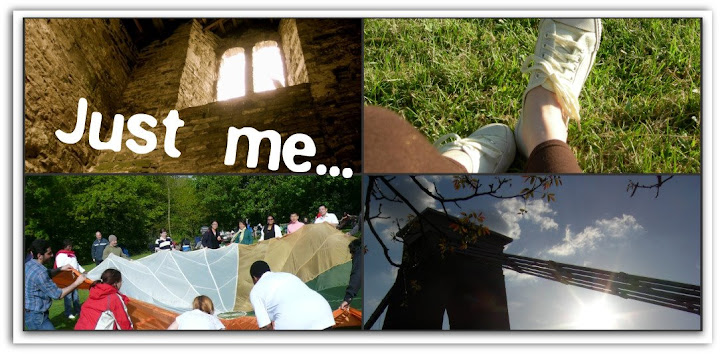Thursday evening I stopped by the University library to stock up on reading material and DVDs for the long weekend. Needing to relax from academic work, I decided to look for a novel... something to escape into, somewhere different from here. So I wandered into the literature section of the University library, honestly a new exploration as my previous research had most exclusively been limited to the CC section of books in anthropology and archaeology. Somehow I happened upon a section of Southern (as in the US South) writers... quite odd and coincidental right, but exactly what I needed, where I needed to travel I think. [smile]
Rifling through the books before me I immediately grabbed McCuller's The Ballad of the Sad Cafe and thought I'd try for one more just in case the grip of that odd ailment that promises a premature death of the relationship between book and reader took hold. My eyes were drawn to an older volume with a yellowed blue spine on which the title: Siesta and author: Barry Fleming were prominently displayed in the fantastically modern simplicity of a 20s font. Hoping you can picture exactly what I'm describing, instead of just thinking I've lost it by spending so much time describing something so inconsequential. [smile] Its just that as I reflect on this book and choosing it in the library I'm hoping I'll be able to divine my own unconscious reasons. Sometimes I guess people don't choose books, books choose their reader. And if any book in that library needed a reader to choose it, this was the one. Since 1977 when it was acquired by the library no other student or faculty had checked it out. The sheet on which dates were to be stamped, bearing the old university logo, was completely empty. Something about a book which had no reader felt so sad to me that I decided I must read it. Ridiculous reason to check out and read a book, I know, but like I said sometimes books choose you.
Its not such a bad book either, though definitely not the best work of Southern literature I've read. The author is a native of Georgia and thats where the story is set. Georgetown, Georgia in the 1920s. It was published before the Second World War, so there's no eerie nostalgia for a time lost. It really seems like Fleming is just writing what he's observed. It is filled with racism and sexism, but that was very much a part of that world. In some ways (not those I just listed as much), it reminds me of the Georgia I know. The cotton fields, the heat of summer, the magnolia blossoms, the tensions of small town life. The book's only real main character is Georgia sun that beats down upon the town waiting for rain. Random citizens of Georgetown flow in and out of focus. I have some feelings that just as the clouds will eventually converge to bring rain, the characters are also building toward some type of storm.
Didn't mean for this post to become a novel of its own... I think I'll get back to reading my anonymous book for a bit.
Just, Margaret



0 comments:
Post a Comment